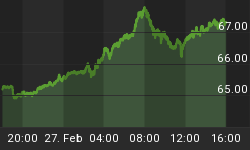Swiss National Bank (SNB) President Philipp Hildebrand finds himself in the hot seat. SNB rules prohibit his family from trading based on non-public monetary and foreign exchange intentions of the SNB (![]() c.f. §4). His wife netted a 60,000 Swiss franc profit buying, then selling U.S. dollars, all within a month; her husband's intervention in the currency market was mostly responsible for the gain. Arguably, she traded to make a profit, publicly explaining, "what motivated me to buy dollars was the fact that it was at a record low and was almost ridiculously cheap". In instructing her account manager, however, she emailed that her motivation was to manage the share of US dollars in their asset mix as part of a long-term investment allocation (
c.f. §4). His wife netted a 60,000 Swiss franc profit buying, then selling U.S. dollars, all within a month; her husband's intervention in the currency market was mostly responsible for the gain. Arguably, she traded to make a profit, publicly explaining, "what motivated me to buy dollars was the fact that it was at a record low and was almost ridiculously cheap". In instructing her account manager, however, she emailed that her motivation was to manage the share of US dollars in their asset mix as part of a long-term investment allocation (![]() c.f. Hildebrand statement).
c.f. Hildebrand statement).
The court of public opinion might be more damaging than the legal process in a country with a tightly knit elite that favors consensus over controversy. Relevant for policy makers and investors alike is that this episode highlights the vulnerability of what we call celebrity central banking. That is, central banking that heavily relies on the persona rather than underlying policy. In Switzerland, the 2009 attempt to peg the Swiss franc to the Euro was mostly driven by Hildebrand; similarly, last year's introduction of a ceiling for the Swiss franc versus the euro is again mostly attributed to Hildebrand. The 2009 peg was given up after it proved too expensive. The 2010 intervention has, so far, held. But it is entirely dependent on the market believing that the SNB will do "whatever it takes" to keep the Swiss franc from rising.
If the Swiss were asked whether they would like to adopt the euro, the popular vote would almost certainly be an overwhelming "NO". Despite this, an unelected official seemingly single-handedly moves the currency at his whim. Arguments about deflation and competitiveness are given; with an unemployment rate of only 3.1%, the argument might have as many holes as Swiss cheese. Importantly, should the market doubt Hildebrand's conviction, the peg-rate policy may turn out to be amazingly expensive - in 2010, the last time the SNB had aborted its intervention and all those euros purchased had fallen in value, the central bank reported tens of billions in losses. The Swiss public may sympathize with the buzzword "competitiveness", but understands losses of that magnitude for tiny Switzerland is a lot of money.
In the U.S., we face similar challenges. Federal Reserve (Fed) policy appears all too dependent on Fed Chair Bernanke rather than what central banking should be about: the preservation of purchasing power. We hear the latest whim on what trick might work to boost the economy, disguised in the name of transparency.
What the Fed and the SNB have in common is that they are both run by celebrities. Bernanke has appeared on "60 Minutes"; Hildebrand is also learning what it means to be in the media limelight. Policy makers only have themselves to blame with the market's obsession with their personas. If they pursued sound monetary policy rather than try to micro-manage their respective economies, market forces could play out. Instead, we may have capital chase the next perceived move of policy makers, leading to capital misallocation, greater volatility, and ultimately more intervention; a self-reinforcing cycle. The public has a high price to pay for modern celebrity central banking.
We would not be surprised to see the Swiss franc rise against the euro as Hildebrand's position may be weakened. Similarly, in the U.S., should credibility in Bernanke's policy erode, it may have negative implications for the U.S. dollar.















